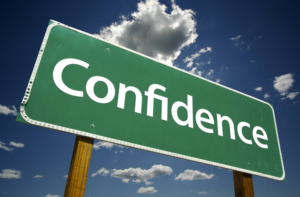Tag Archive for: confidence
Confidence is defined as “a feeling of self-assurance arising from one’s appreciation of one’s own abilities or qualities.” You know there’s something about a confident person. They are individuals who walk with a certain air about them….not arrogance or hubris, but a quiet confidence. They may not know how to do it all, but you wouldn’t know that by seeing them in action. I think of confident leaders I’ve known who were so certain of themselves that I was instantly drawn to them, as were others.
Confident people engage other people.
Well, how do you get there? What is it about confidence? What is that aura that is so engaging and compelling? And how do you develop greater confidence for yourself?
Confidence is a muscle that you can learn to grow and strengthen. Just like progressive resistance exercise which increases weights to build muscle, confidence grows as you use it more and more and in a variety of situations.
It can help you to sell your agenda, whatever it is. Whether trying to persuade your boss, or a hiring manager through an interview, a confident attitude can help you to succeed. Many times, the individuals you are meeting with are looking for that confident attitude in those situations. Demonstrating confidence goes a long way to “close the deal” on your behalf.
Here are a few exercises for that confidence muscle:
1. Think back to a time when you were highly confident and successful. What were you doing in those situations? What made you confident and self-assured? Find a way to bring that experience into your current one. If you could do it then, you can do it now. What would need to be present to feel like that again?
2. Sometimes a lack of confidence can equal fear about a situation. Understand and acknowledge the fear and hesitation. It’s there for a reason. Then (as a wonderful book stated), “Feel the Fear and Do It Anyway” (Susan Jeffers). That thing you most fear can be something that strengthens your confidence muscle, and becomes a “must do.” Now, if it’s something like public speaking, start small with speaking in front of a few people and work your way up.
3. Find a role model of confidence around you. It could be a leader or a peer or someone who just embodies that bold yet measured self-assurance. Think about how this person would handle the situation where you need more confidence and “channel” that person’s confidence to help you through.
4. Fake it till you make it. I’ve used this one many times in addressing large meetings. As you look out over the crowd, it can be intimidating. But when you take on a persona of confidence, it becomes much easier. It takes some practice, but I can tell you it is doable!
5. Take three deep breathes and lift your arms up in a V. Feel your power all around you. It’s who you are and it will bring you confidence. I suggest this to many of my clients, especially before an interview, taking some time alone and feeling your power. Amy Cuddy writes about power poses and how these can help lift the confidence factor. It’s definitely worth a try!
Confidence is an important skill to learn and build. It takes some practice to build but the benefits can affect every aspect of your life.
ACTION CHALLENGE
Time to express greater confidence in all that you do. Set a goal to move toward a more confident you this week by using some of the techniques here, or on your own.
I would love to hear your thoughts.
Do you want more confidence at work and in other social situations? Whether you are a leader or an individual contributor, there is a certain amount of confidence that can help you in your day. People are naturally attracted to confident individuals, so this makes it an essential skill to develop.
Where does confidence come from? Are you born with it or can you develop it over time?
Building confidence requires work from the inside out:
Confidence begins within by knowing who you are, and this learning can be a continuous lifetime endeavor. Within knowing yourself, it’s important to start with strong self-esteem. Confidence is related to how well you think of yourself. A strong foundation of self-awareness can help you determine your self-esteem. Do you have trust in yourself? If not, others won’t either.
Know your beliefs and core values. This is where it can be useful to take assessments such as the Myers Briggs, DISC, Positive Psychology VIA Strengths, or Strengthfinders. These are all available online or in books. Understand your “go-to” style through your natural strengths and focus on these as you build confidence.
Know your strengths and weaknesses. Asking for feedback can be very helpful in this regard, as can 360-degree evaluations. You want to understand how you are perceived…it may be very different from what you think. Now, this one may pose challenges for you as it did for me. I always felt that feedback increased my vulnerability, and that was very uncomfortable. In retrospect, I now see appropriate feedback as the gift that it is and how it could have helped me grow even further in my leadership.
Be willing to admit mistakes. This allows you to take on a more approachable tone with others which is also a sign of confidence.
Understand the difference between confidence and arrogance. Arrogance is usually born out of tremendous self-doubt. It has no relationship to confidence in yourself.
Consider yourself the expert and assume this role without arrogance or excessive hubris. Sometimes you may need to do your research upfront to demonstrate competence as an expert. Once you do your homework, come across as the expert.
Remember the P’s: Presence, Posture, Poise, aPParel. All of these speak to your confidence factor. Develop a strong presence, executive presence if you are in leadership. Ensure you are always exhibiting good posture in sitting and walking. Poise is a gracious self-possessed way of being. Finally, apparel speaks to what you wear. The right clothing can give you a definite air of confidence.
Take a risk. Speak up in that meeting. If you feel the need to disagree, have something else to offer. Confidence builds from risk. If you don’t risk, you don’t strengthen that confidence muscle. You can practice and you can learn and you can study and you can think about it all day, but for the “rubber to meet the road” you have to take a risk. Notice that it is risky and not achievement per se, that builds confidence. What risk are you hesitating to make right now? Will taking that risk to build your confidence?
Be gentle with yourself. Just as when you’re working out to get fit, continue to find ways to work that confidence muscle into greater strength. Consider working with a Career Coach to strengthen your overall confidence in the situations you encounter.
Confidence can help you to avoid stress, work more effectively, positively influence others, and give you a greater sense of self-achievement and efficacy at the end of the day.
Is it time to put your confidence exercise program into place?
ACTION CHALLENGE
Think about a risk you can take. Start small. How can you experiment with risking and learning to build more confidence? Also, if you haven’t taken any of the assessments recommended above, this is a great time to start! Ask for feedback and truly listen to what is said.
Lupe S. Wood, MS, PCC, is a certified Career/Executive Coach. She coaches individuals and leaders to career fulfillment, transition, and advancement. She also consults for results with businesses and solopreneurs. Her background includes 12 years in senior leadership for a Fortune 100 corporation and 7 years as a coach, with a Master’s degree in Organizational Effectiveness and Executive Coaching.
For more information, please visit my website at www.upcoached.com



